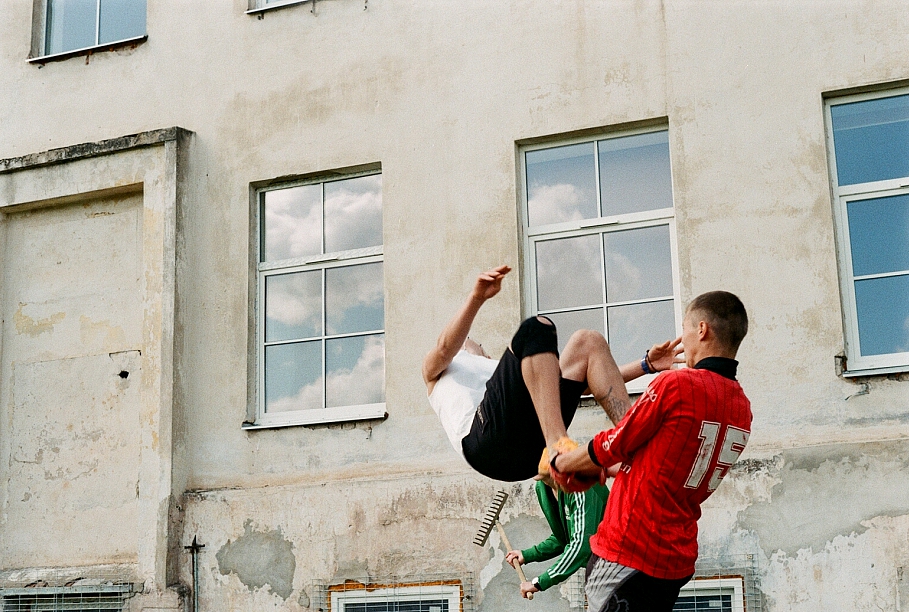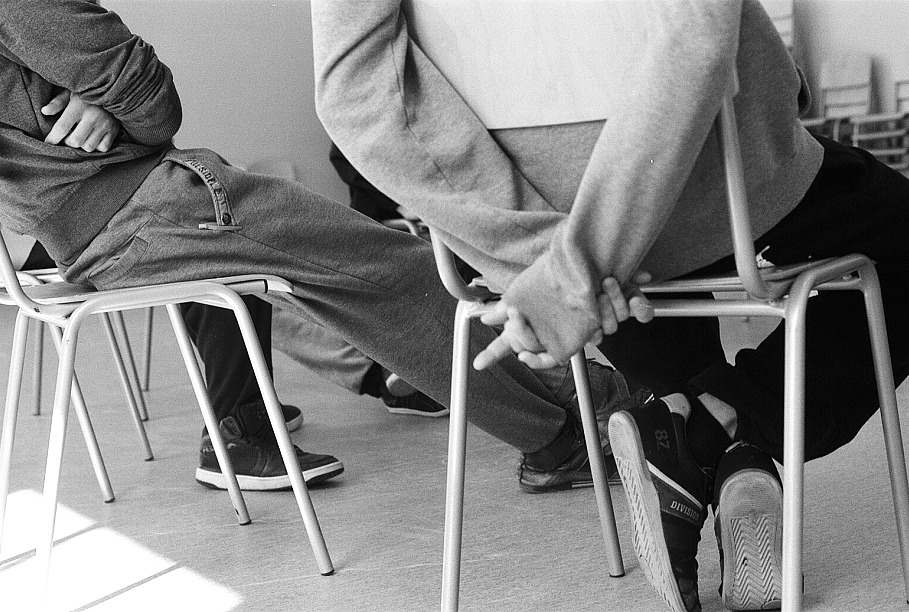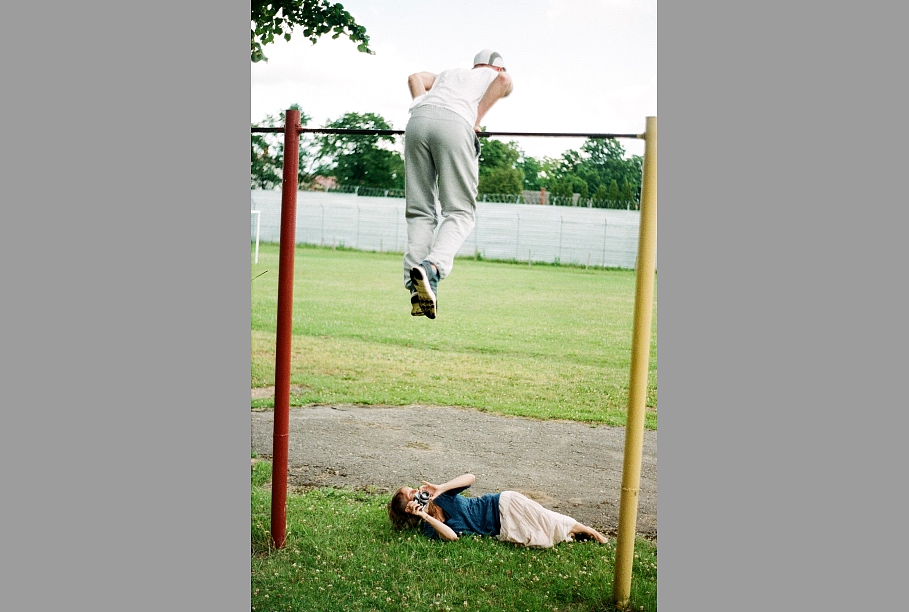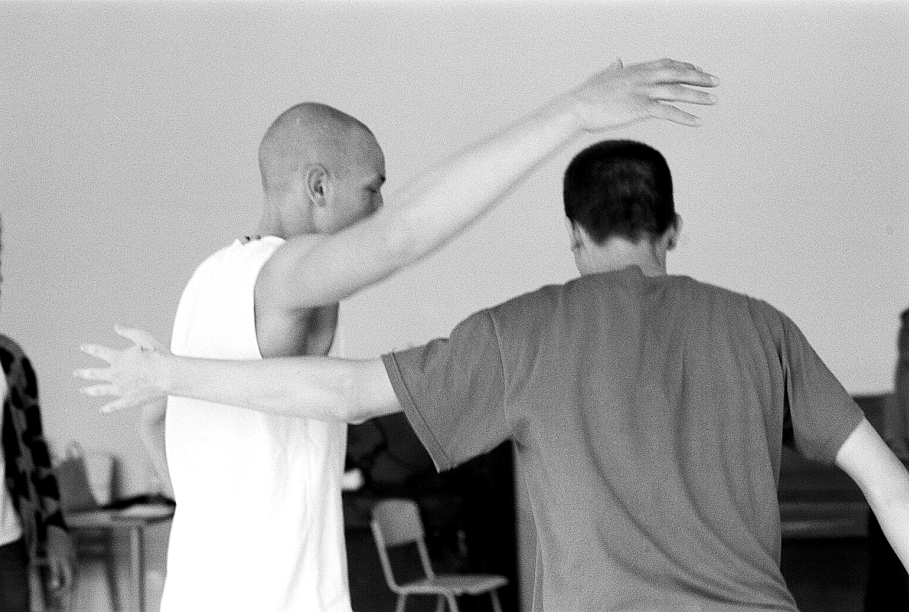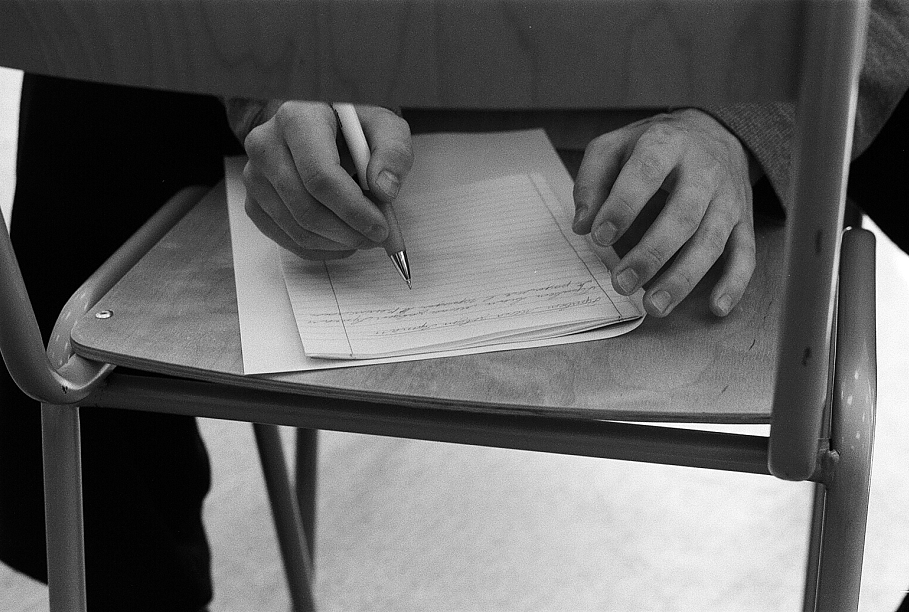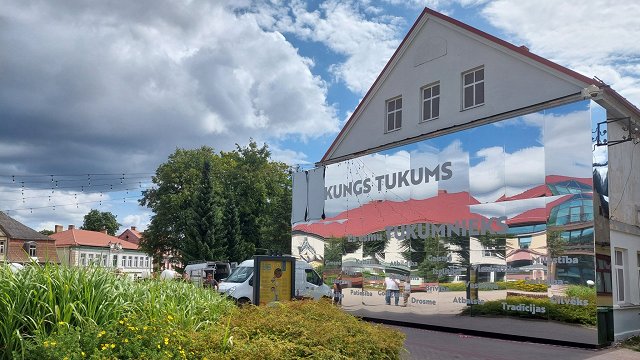In six months, six inmates of the youth detention center, working together with directors Alberto di Gennaro, Ilze Mazpane and Kristīne Ļeontjeva, have staged a play "Everything's fine".
The young people, the few that have made it through to the staging, are impersonating a chauffeur, a dancer, an auto mechanic, an athlete and a sage.
The young people are so enthusiastic it's hard to believe they've been sentenced for severe offences.
A third of the 40 young people serving sentences in the Cēsis youth detention center are here for murder, others - for rape or robbery, though they're reluctant to tell why they're here.
"When I came [to the repetition] I thought it'd be different. That we'd take a play, learn it by heart, and so on. But when we came here and started improvising, everything went smoothly. But until May or so we seriously doubted what will happen of it," said one of the inmates, Ainars. He is 19, well-built and has tattoos on his arms. He is speaking Russian, Latvian and English in the play.
He says that of the things he learned during the repetitions of "Everything's fine", it was patience that was required the most.
The swan figures, made from 40,000 pieces of folded paper also took a lot of patience, as did the walk to Aglona this summer, when some went there from Cēsis, accompanied by their supervisors. He has spent three years in the detention center, and five more are ahead. As the term is close to the maximum, evidently he's been sentenced for a grave offence.
While Emīls, a tall youngster who doesn't waste words and is rather shy, says that he has learned to communicate more effectively. He has been sentenced to almost ten years.
After the premiere, the Cēsis youth detention center seemed to have lit up - the actors engaged in discussion with the viewers, hugged the directors and asked if they'll come again. Alberto di Gennaro said that he would.
Alberto is a director from Italy who is living in Cēsis for a year, and the project started with him wanting to get to know his neighbors, though with the support of ziedot.lv it became a project that lasted for half a year.
The director says it was an uphill battle sometimes, as the inmates attended the repetitions irregularly, and some left the project when it was half-through.
"Theoreticians say that theater is the double of life, the place where you show your real life. I wanted to get to where the guys aren't acting anymore, where they're themselves. I think we helped them become unafraid of being themselves," said Alberto.
The name of the play is a play on the actors' answer to the question "how are you". They had answered "Everything's fine" for several weeks, but when they were finally confronted with the question - what isn't fine, then? - they replied that being here isn't fine.
The Cēsis youth detention center is a world on its own. There are two buildings, one for those arrested, one for those sentenced. With the support of the Norwegian government, it has become the most comfortable detention facility in Latvia, where boys from 14 to 25 live here in rooms of two.
There are many ways to spend time here – even the inmates admit as much. A music club, carpentry, sports, gardening... Perhaps some of those who get here have the chance to spend time as meaningfully as it can be done here for the first time in their lives.
There's no doubt that adolescents lack neither creativity nor patience to give their time to something valuable, but it's no secret that the greatest troubles appear when they are released.
Before they're released, some inmates ask whether they can stay here, as they know if they leave they'll have to go back again as there'll be no job and no place to stay for them outside, Andris Pāže, the head of the Cēsis youth detention center said.
Even though there are no statistics, he thinks that about a quarter of the inmates return behind bars - though in many cases, behind the bars of a very real prison.
